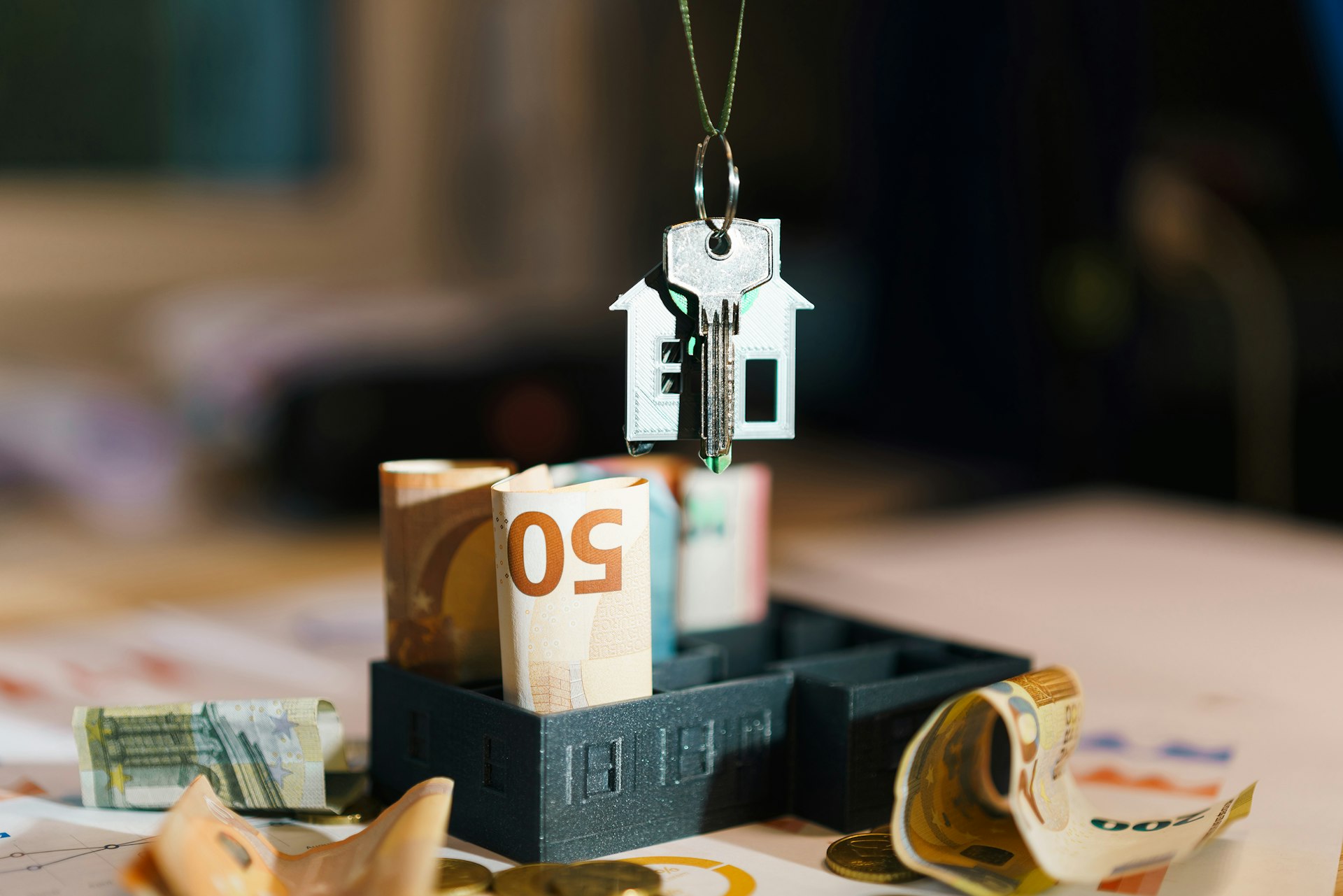Unlocking the Future: How Real Estate Tokenization Platforms Are Transforming Property Investment

Photo by Abdullah Ahmad on Unsplash
Introduction: The Dawn of Tokenized Real Estate
Real estate tokenization platforms are spearheading a digital revolution in property investment, promising to make markets more accessible, liquid, and globally inclusive. By converting property rights into blockchain-based digital tokens, these platforms are lowering barriers to entry and enabling fractional ownership, fundamentally changing how investors and property owners interact with real estate. As the market rapidly evolves, understanding its trajectory, practical opportunities, and challenges is critical for investors, developers, and industry professionals alike. [2]
What Is Real Estate Tokenization? Breaking Down the Basics
Real estate tokenization is the process of representing ownership of property assets as digital tokens on a blockchain network. Each token can represent a fractional interest, such as 1% of an apartment building or office park. These tokens are tradable, often on secondary marketplaces, allowing for substantially increased liquidity compared to traditional real estate investments, which are typically illiquid and require significant capital. [3]
Platforms like RealT and Lofty.ai offer investors the ability to purchase property shares for as little as $50, with returns distributed as daily or monthly rental income. This innovation is democratizing access to markets that were previously the domain of institutional investors and high-net-worth individuals. [4]
Market Growth and Future Projections
The tokenized real estate sector is poised for exponential growth. Industry forecasts suggest the market could exceed $16 trillion by 2030, with some estimates as high as $30 trillion. [1] As of 2023, the market was valued at around $120 billion, with projections by leading consultancies such as BCG and Roland Berger expecting it to reach $3 trillion by the end of the decade. [5]
These numbers reflect the growing appetite among both institutional and retail investors. Recent surveys indicate that by 2026, institutional investors plan to allocate over 5% of their portfolios to tokenized assets, with nearly half citing real estate as their preferred sector. [5]
Key Benefits of Tokenization Platforms
The benefits of real estate tokenization platforms extend well beyond fractional ownership:
- Lower Minimum Investment : Entry points as low as $50 make property ownership accessible to a wider audience. [3]
- Increased Liquidity : Tradable tokens enable investors to buy and sell shares quickly on secondary markets, a stark contrast to the lengthy sales cycles of traditional real estate. [2]
- Global Reach : Blockchain-based platforms remove geographical barriers, allowing anyone to invest in properties worldwide.
- Transparency and Security : Blockchain ensures tamper-proof records of ownership and transactions, boosting investor confidence.
- Efficient Transactions : Smart contracts automate rental income distribution and property management, reducing administrative costs and errors.
Top Real Estate Tokenization Platforms to Watch
Several platforms are leading the charge in 2025, each offering unique features and compliance frameworks:
- RealT : Based in the U.S., RealT offers property-backed tokens on Ethereum and Gnosis, with daily rental distributions and a robust compliance process. [4]
- Lofty.ai : Allows investors to purchase tokens with low minimums, offers daily rental income, and provides a secondary marketplace for trading. [2]
- XRPL (XRP Ledger) : Known for its speed, cost efficiency, and compliance tools, XRPL is becoming a preferred backbone for new tokenization projects. [1]
To access these platforms, you typically need to:
- Register an account by providing identification and completing KYC (Know Your Customer) verification.
- Link a digital wallet compatible with the platform’s tokens.
- Deposit funds (often in stablecoins or fiat currency) and select properties to invest in.
- Start earning passive income or trading tokens on secondary marketplaces.
If you are new to these services, it is advisable to review platform documentation and support resources, or seek independent financial advice before investing.
Challenges and Risks: What You Need to Know
Despite its promise, real estate tokenization faces several hurdles:
- Regulatory Uncertainty : In jurisdictions like the U.S., real estate tokens are generally classified as securities, subjecting them to strict SEC regulation. [5]
- Smart Contract Vulnerabilities : Coding errors or exploits can pose risks to investor funds.
- Liquidity Risks : While secondary markets exist, they may not always have enough buyers and sellers for instant trades.
- Market Maturity : The sector is still emerging, with standards and best practices evolving rapidly.
To mitigate these risks, investors should:
- Choose platforms with strong compliance protocols and transparent operations.
- Conduct thorough due diligence on each property and its underlying token structure.
- Monitor regulatory developments and consider consulting legal professionals for cross-border investments.
How to Get Started: Actionable Steps for Investors
If you are interested in participating in this emerging sector, follow these steps:

Photo by Jakub Żerdzicki on Unsplash
- Identify a reputable real estate tokenization platform, such as RealT or Lofty.ai. Research their offerings, compliance status, and user reviews.
- Complete the registration and identity verification process as required by the platform.
- Fund your account using the accepted currencies (typically fiat or stablecoins like USDC or DAI).
- Select properties that match your investment goals. Review legal documents, offering memorandums, and rental income projections.
- Purchase tokens representing fractional ownership and monitor performance through the platform dashboard.
- For liquidity, explore the secondary marketplaces available on the platform for trading your tokens when desired.
If you prefer additional guidance, you can consult with a financial advisor experienced in digital assets or contact the platform’s support or compliance team via their official website.
Alternative Approaches and Future Outlook
While tokenization is rapidly gaining ground, traditional methods such as Real Estate Investment Trusts (REITs) and crowdfunding platforms remain viable alternatives, offering different risk profiles and regulatory protections. However, tokenization’s unique combination of transparency, efficiency, and accessibility is expected to drive its adoption further. [3]
Looking ahead, the future of real estate tokenization platforms will be shaped by:
- Continued regulatory evolution and potential for broader retail participation.
- Global expansion, enabling cross-border investments and property listings.
- Integration with decentralized finance (DeFi) protocols, enhancing liquidity and utility.
- Advancements in smart contract security and platform interoperability.
Conclusion: Seizing the Opportunity
Real estate tokenization platforms are unlocking unprecedented opportunities for investors and property owners worldwide. By leveraging blockchain, these platforms make property investment more accessible, liquid, and efficient than ever before. As the landscape matures, staying informed and adopting best practices will be key to maximizing benefits while managing risks.
References
- [1] Antier Solutions (2025). XRPL Real Estate Tokenization: Why 2025 Is the Launch Pad for Global Platforms.
- [2] Lofty.ai (2025). Ultimate Guide to Real Estate Tokenization 2025.
- [3] Primior (2025). 5 Reasons Real Estate Tokenization Could Dominate the Market by 2025.
- [4] Vocal Media (2025). Top 5 Real Estate Tokenization Platforms to Watch in 2025.
- [5] ScienceSoft (2025). Real Estate Tokenization in 2025: Facts and Trends.



